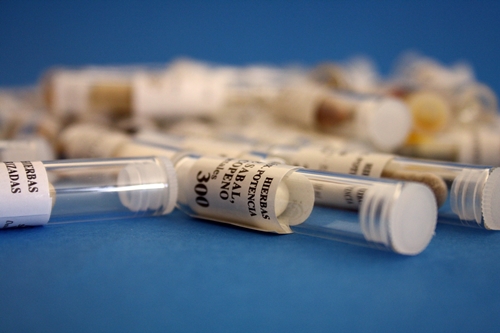18 January 2017. A group of 22 pharmaceutical companies is supporting worldwide projects to improve access to prevention and treatments for chronic disorders like cancer and heart disease, in lower-resource regions. The Access Accelerated initiative was announced today at the annual meeting of the World Economic Forum in Davos, Switzerland.
Access Accelerated aims to reduce or remove barriers to drugs that prevent or treat non-communicable diseases, starting with cancer, but including cardiovascular diseases, chronic respiratory disease, diabetes, and mental health disorders. The initiative is targeting low- and medium-resource countries, already burdened by much higher rates of infectious diseases, and organized by International Federation of Pharmaceutical Manufacturers and Associations that acts as its administrator.
The initiative contributes to the United Nation’s Sustainable Development Goals that aim to reduce premature deaths from non-communicable diseases, or NCDs, by one-third by 2030. World Bank, a partner organization in Access Accelerated, will identify financing, regulatory and service delivery barriers to prevention and treatments, and recommend solutions to overcoming those barriers. World Bank will also conduct pilot projects in primary care, beginning in Africa.
“If the current trend in NCDs in low- and lower-middle income countries is not reversed,” says Ian Read, CEO of Pfizer in a statement by Access Accelerated, “there is a real possibility we will undermine the progress we have made in health around the world. To reach our goal, we need to catalyze new partnerships, learn quickly and advance the resources and knowledge that will enable countries to tackle NCDs.” Read is also president of International Federation of Pharmaceutical Manufacturers and Associations.
Access Accelerated plans to collaborate with organizations and efforts addressing non-communicable diseases. Its first partner is a project called C/Can 2025: City Cancer Challenge. This effort is undertaken by UICC, a global coalition of 950 organizations in 150 countries addressing cancer. C/Can 2025, like Access Accelerated, was launched at the World Economic forum, and plans to design and implement improvements in access to cancer treatments at the community level.
By addressing cancer care in communities, C/CAN 2025 believes it can reach its goal of reducing deaths from non-communicable diseases by 25 percent by the year 2025. The project focuses on cities with populations of 1 million or more in low- and middle-income countries, beginning with a small group of what it calls “learning cities” that need international support to provide effective cancer care. The first group of learning cities is Cali, Colombia, Asuncion, Paraguay, and Yangon, Myanmar.
Companies and organizations participating in Access Accelerated include Almirall, Astellas, Bayer, Bristol-Myers Squibb, Celgene, Chugai, Daiichi Sankyo, Eisai, Eli Lilly and Company, EFPIA, GlaxoSmithKline, The International Federation of Pharmaceutical Manufacturers and Associations (IFPMA), Johnson & Johnson, JPMA, Menarini, Merck, MSD, Novartis, Pfizer, PhRMA, Roche, Sanofi, Shionogi, Sumitomo Dainippon, Takeda, and UCB.
Read more:
- Sanofi, Alphabet Create Diabetes Venture
- Collaborations Study Microbiome in Cancer, Metabolic Disease
- Sanofi Adopting Big Data for Diabetes Drug Adherence
- Charity Starts Industry-Backed Cancer Research Effort
- Workplace Heart Health Platform in Development
Disclosure: The author owns shares in Pfizer and Johnson & Johnson.
* * *


 RSS - Posts
RSS - Posts
You must be logged in to post a comment.